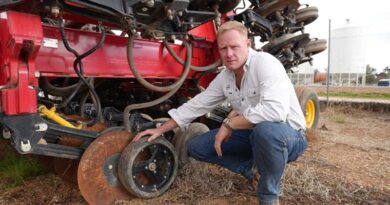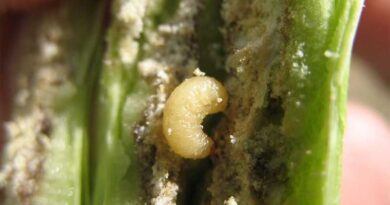Moa Reveals Data on Next-Generation Herbicides with New Modes of Action and Progress Towards Field Trials
25 January 2024, UK: Moa Technology, the agricultural biotechnology company tackling herbicide-resistant weeds that threaten the world’s food security, has revealed data demonstrating the power of its Galaxy next-generation herbicide discovery platform and announced that it will start international field trials in 2024. The trials planned in the northern and southern hemispheres will cover multiple lead molecules derived from new herbicide modes of action (MOAs).

The data was presented by Moa’s Chief Scientific Officer, Dr Xavier Jacq, at the 64th Annual Conference of the Weed Science Society of America (WSSA), held in San Antonio, Texas, on 24 January at a symposium on New Approaches to Herbicide and Bioherbicide Discovery. In his presentation titled Galaxy, a High-content Imaging Platform Enabling Novel Herbicide Discovery, Dr. Jacq provided an overview of Moa’s innovative and systematic large-scale herbicide discovery engine, which is finding novel classes of MOAs with unique and potentially powerful herbicide activity an order of magnitude faster than traditional methods.
Herbicide-resistant weeds threaten food security and agricultural productivity and are a major problem for growing numbers of farmers across the world. Without effective herbicides, farmers can lose up to 40% of their crop yield as a result of weed growth, as highlighted in a recent report by Reuters: Crop-killing weeds advance across US farmland as chemicals lose effectiveness.
“The need for innovation to develop next-generation herbicides to overcome weed resistance to current herbicides is becoming ever more apparent,” says Dr Xavier Jacq, Chief Scientific Officer of Moa Technology. “For decades, innovation in herbicides has relied on analogs within chemical families that work with established modes of action, so the real problem is how do we find a whole new generation of herbicides working in novel ways to tackle the drought in novel MOA discovery – a challenge we believe we are on our way to solving at Moa.”
Dr Jacq was recruited by Moa with biotech expertise from companies such as KuDOS Pharmaceuticals, Mission Therapeutics, Almac Discovery, and Dunad Therapeutics; he leads a team of scientists applying technologies that have been effectively used in drug discovery over recent decades to herbicide discovery.
Moa’s proprietary cutting-edge biotechnology platforms use the plant-led phenotypic Galaxy platform to screen a huge diversity of natural and synthetic chemistries on miniaturized whole plants to rapidly identify an abundance of new, never commercialized herbicide MOAs at an unprecedented scale, speed, and cost, answering the questions “Is it a herbicide, and does it work in a new way?” Target, the next step in its process, combines a constellation of powerful genetics, phenotypic, biochemical, OMICs, and bioinformatics to rapidly identify the target protein, pathway, and new MOA, accelerating predictions of safety and optimization into farm-ready herbicides.
Already this suite of platforms has screened more than 750,000 synthetic and natural product-derived chemical compounds. In just two years, Moa has identified over 60new novel MOA areas and characterized their performance against panels of weeds and crops in its glasshouse facilities.
Dr Jacq says: “There has been only one herbicide with a new MOA introduced to the market in the past 35 years, and none for many of the large-acreage crops the world relies on. At Moa we are advancing a growing pipeline of novel herbicides including bioherbicides towards field trials at pace. The speed and power of our approach means we will be entering international field trials in both the northern and southern hemispheres in 2024 with multiple lead molecules derived from new MOAs.”
Venture-backed, highly ambitious, and fast-growing, Moa Technology, which was spun out of the University of Oxford has built a large, dedicated R&D team with the aim of changing the paradigm in herbicide discovery, to support farmers with better herbicides that improve crop health and productivity and mitigate against the impact of climate change.
Also Read: Exclusive: Why is Mancozeb important for UPL?
(For Latest Agriculture News & Updates, follow Krishak Jagat on Google News)















